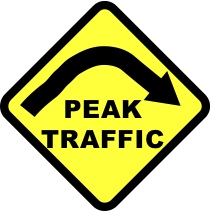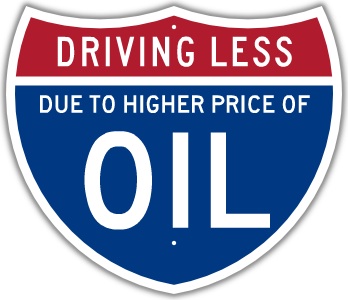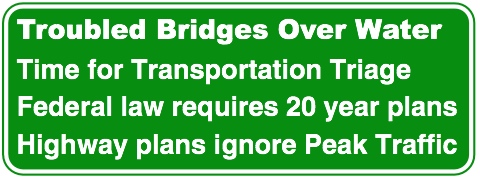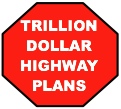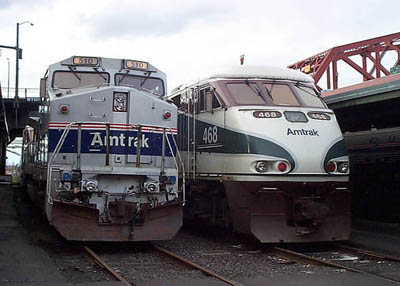High(er) Speed Trainsrebuilding the rails"In the United States, we have a railroad system that the Bulgarians would be ashamed of. We desperately are going to need railroad transport for moving people around, for moving goods around – we don't have that. What we do have is a trucking system that is going to become increasingly dysfunctional, especially as the expense mounts of maintaining the tremendous interstate highway system. It costs so much money every year to maintain what the engineers call a high level of service – which means that the trucks that are delivering things from the central valley of California to Toronto don't break their axles while they're bringing those Caesar salads to Toronto. Once you have a certain number of trucks that are breaking their axles in that 3,000 mile journey, that's the end of transcontinental trucking – which also implies that this is the end of certain economic relationships that we have gotten used to."-- James Howard Kunstler, from an interview in the film "The End of Suburbia: Oil Depletion and the End of the American Dream" |
|
National rail maps from National Assocation of Rail Passengers
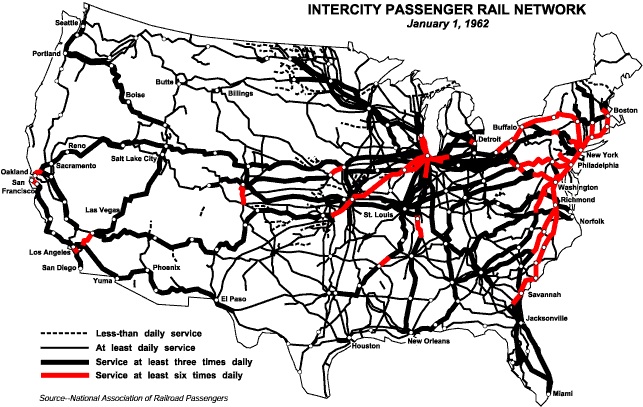
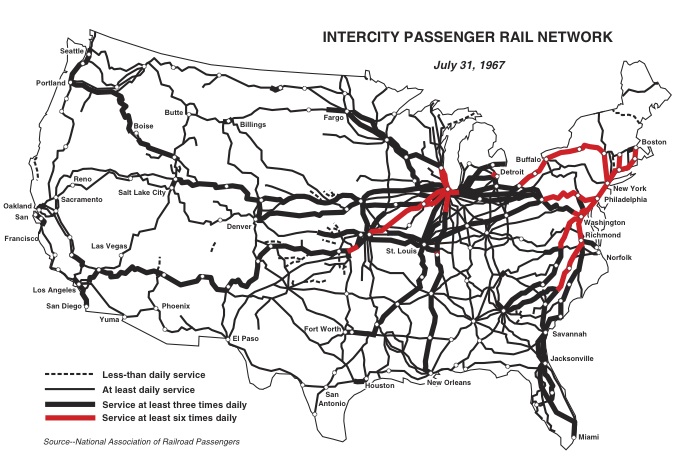
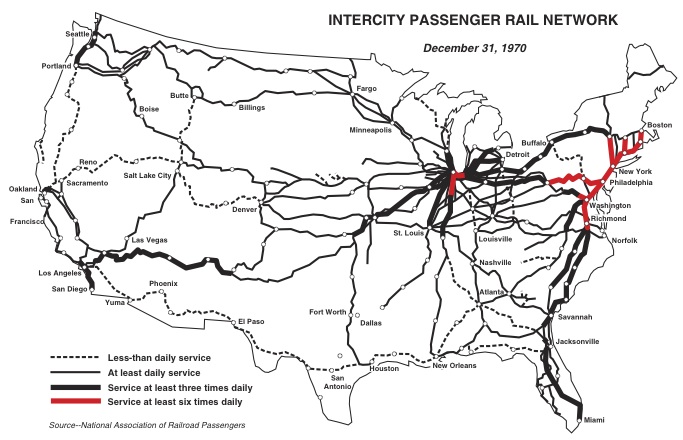
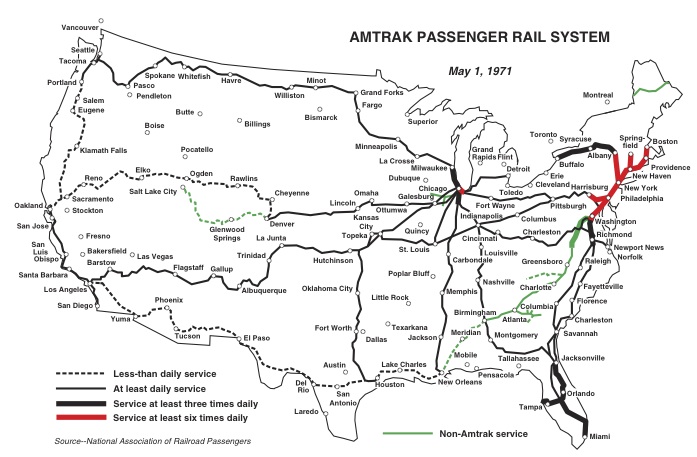
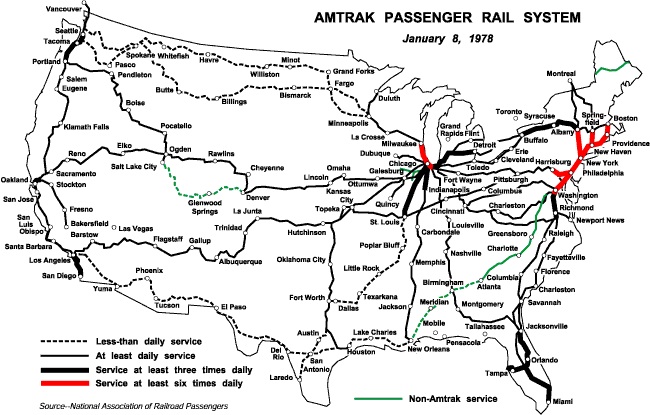
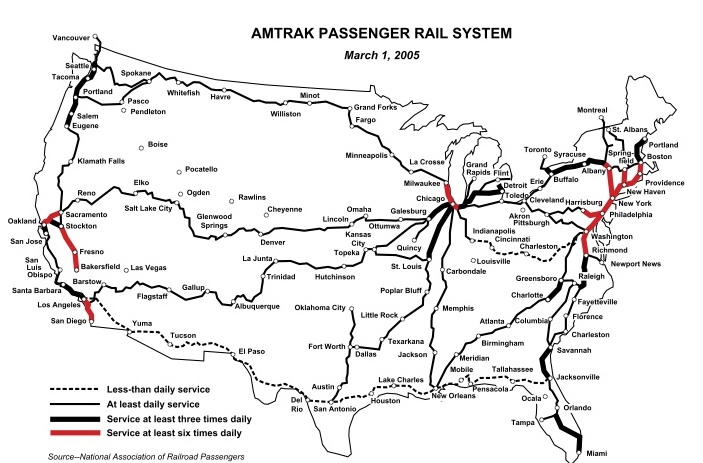
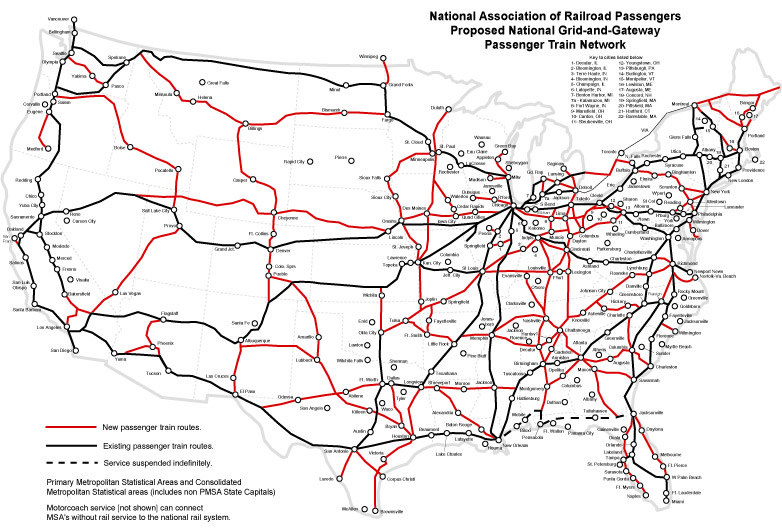
High Speed Rail
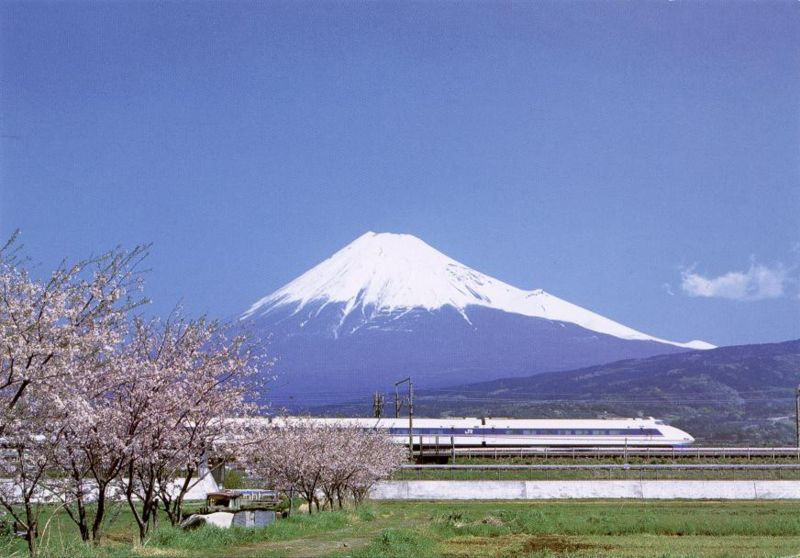
Japanese bullet train passing by Mt. Fuji.
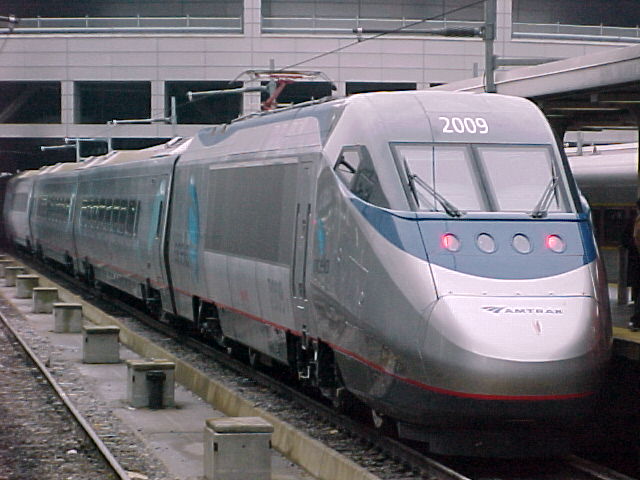
Amtrak Acela - the fastest train in the US. It can reach top speed of 150 mph / 250 kph -- on short sections of track in Rhode Island and Massachusetts. Most of the route has track and overhead wires designed for slower speeds.
http://prorevnews.blogspot.com/2010/12/morning-line-why-infatuation-with-high.html
December 29, 2010
Morning line: Why the infatuation with high speed rail?
Sam Smith, The Progressive Review
For some time I've been trying to figure out why the Obama admnistration has placed so much emphasis on high speed rail and so little on the ordinary kind, which would serve a far broader and less wealthy segment of the country. Was it just another example of class theft? Was it the companies behind the contracts?
Such factors play a role, but it has recently occurred to me that the real reason may not have anything to do with passenger service at all. It may be that Obama wanted to appear to be doing something grand in the transportation field while at the same time doing nothing that would offend the trucking lobby. High speed rail would be perfect as it minimizes any advantage to conventional and badly needed freight rail service.
There is absolutely no transportation or environmental reason not to improve conventional frieght and rail service but if you can find an alternative that makes the yuppies and the truckers happy at the same time, why bother?
http://prorevnews.blogspot.com/2011/02/high-speed-rail-for-high-incomes.html
FEBRUARY 10, 2011
High speed rail for high incomes
Sam Smith
The only serious analysis of high speed rail we've seen in the archaic media has come from economist Robert Samuelson. Why so little? Because basically, high speed rail is basically an earmark for the business class, for reporters whose travel is reimbursed and for other upscale riders.
Looked at from an economic perspective, it is the class equivalent of ethnic segregation: the elite get to go high speed rail, the rest sit in the back of the bus. There's billions in funding for the former and little for the latter or for conventional rail.
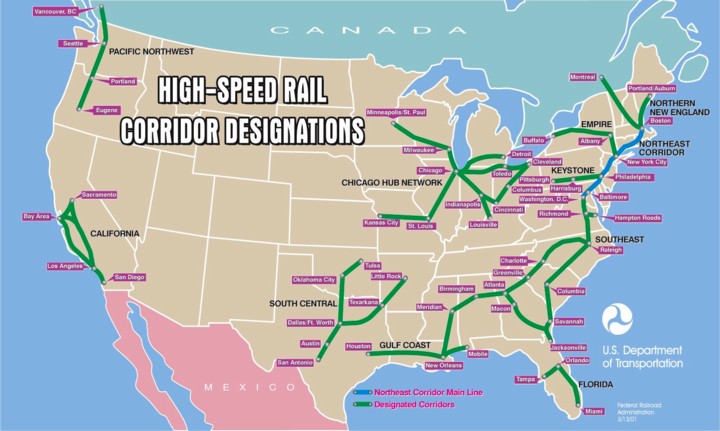
High speed rail proposal made during the George W. Bush administration.
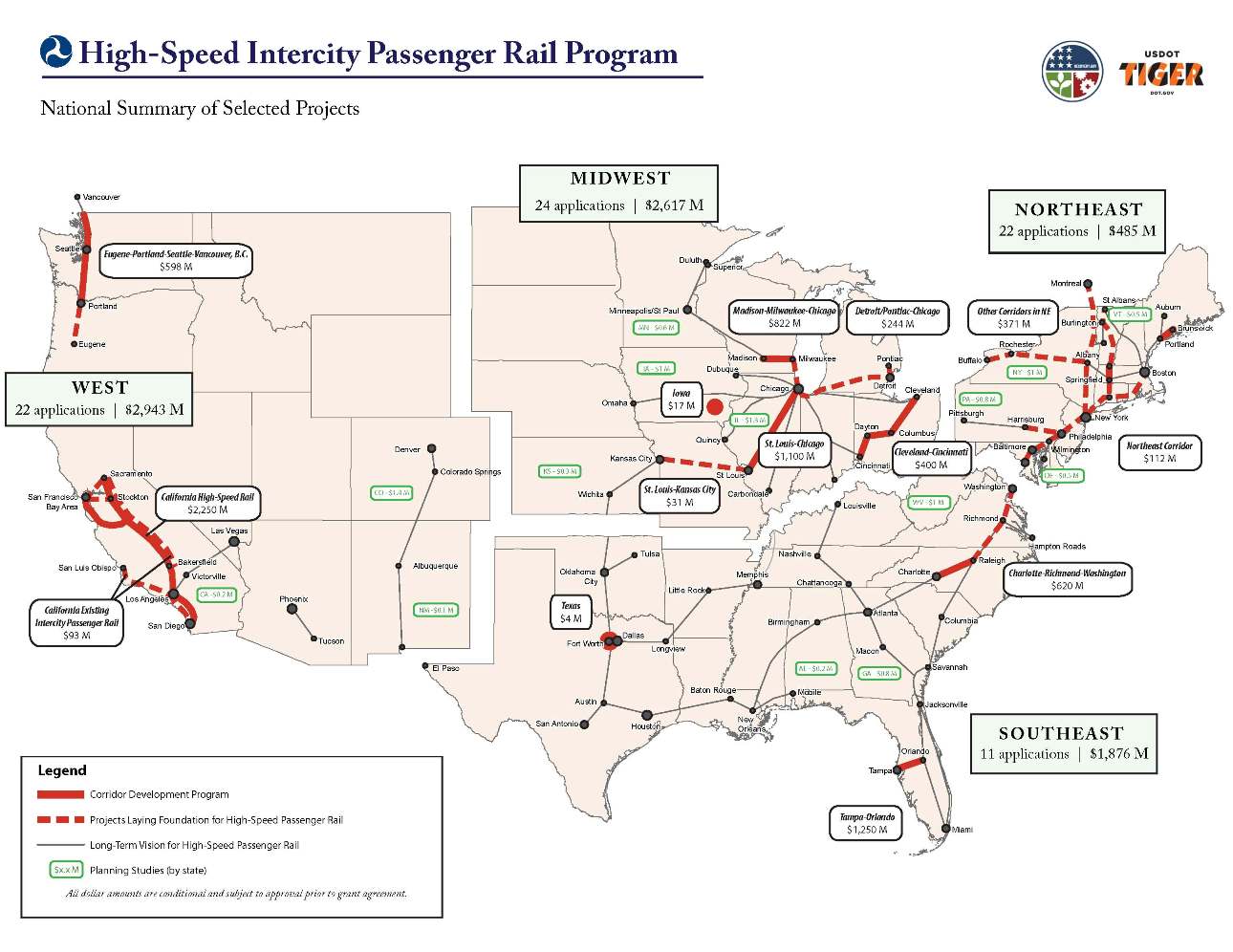
Subsequent high speed rail proposal by the Obama administration.
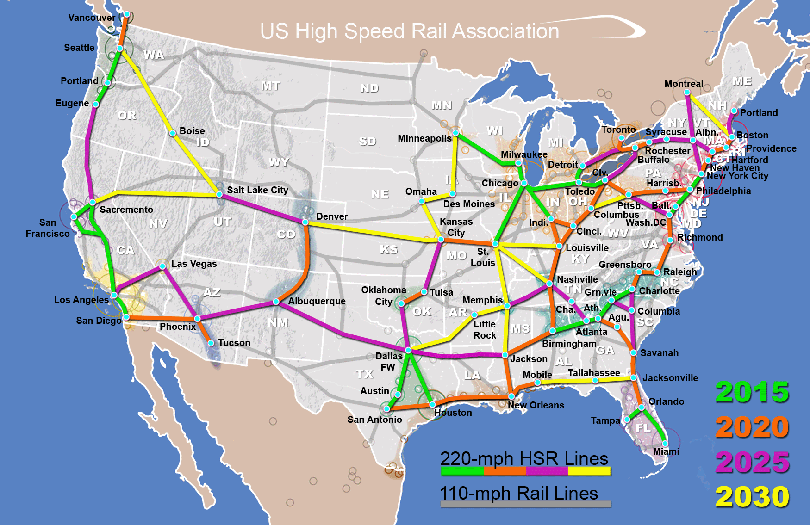
Non-governmental proposal for national high speed rail network. The "2015" deadline isn't going to be met anywhere with super high speed rail -- or even modest upgrades to existing Amtrak intercity service. Meanwhile, construction of new fighter planes and aircraft carriers continue to soak up tens of billions of dollars.
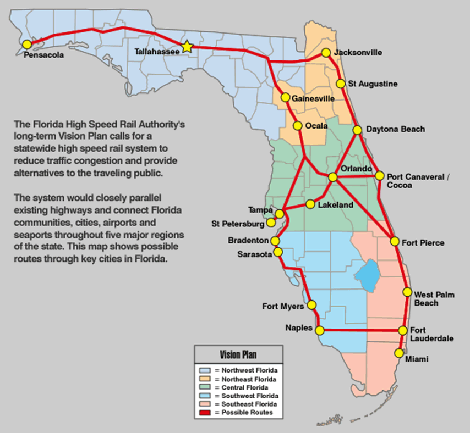
Florida high speed rail concept rejected by the Republican controlled state government due to partisan politics. Oil depletion poses risks to the influx of tourists who visit Florida (and use transportation systems), so perhaps a modern train network will not be needed in the Sunshine state. Florida is famous for having lots of elderly people, many of whom no longer drive, but most of the state has little or no public transportation.
It is likely climate change caused sea level rise will interfere with coastal cities before Florida high speed rail is built.
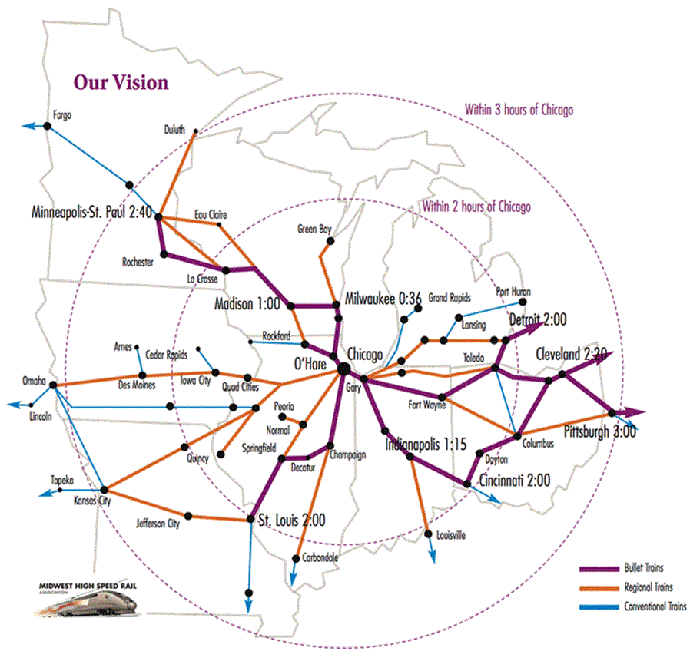
Midwest high speed and higher speed train network proposed by Midwest High Speed Rail Association. Chicago is the second largest rail hub in the US, after New York City.




